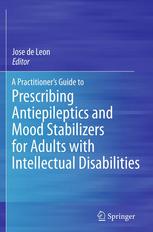

Most ebook files are in PDF format, so you can easily read them using various software such as Foxit Reader or directly on the Google Chrome browser.
Some ebook files are released by publishers in other formats such as .awz, .mobi, .epub, .fb2, etc. You may need to install specific software to read these formats on mobile/PC, such as Calibre.
Please read the tutorial at this link: https://ebookbell.com/faq
We offer FREE conversion to the popular formats you request; however, this may take some time. Therefore, right after payment, please email us, and we will try to provide the service as quickly as possible.
For some exceptional file formats or broken links (if any), please refrain from opening any disputes. Instead, email us first, and we will try to assist within a maximum of 6 hours.
EbookBell Team

0.0
0 reviewsEmotional, behavioral, and neuropsychiatric conditions are common in individuals with intellectual disabilities (IDs), most notably epilepsy, aggression, self-injurious behaviors, and bipolar and other mood disorders. Despite the prevalence of such problems, there is a scarcity in the literature of reliable information on medical treatments for those with IDs.
A Practitioner's Guide to Prescribing Antiepileptics and Mood Stabilizers for Adults with Intellectual Disabilities provides a detailed framework for prescribing for this challenging population. Featuring the most up-to-date information on factors that inform prescribing, the Guide addresses basic issues and controversies (e.g., the rift between evidence-based and personalized medicine) in treating adults with cognitive deficits. Clients' specific needs are emphasized in developing appropriate and effective pharmacological intervention for improved outcomes and quality of life. Drugs discussed in the Guide include carbamazepine, clonazepam, diazepam, ethosuximide, felbamate, gabapentin, lacosamide, lamotrigine, levetiracetam, lithium, lorazepam, oxcarbazepine, phenobarbital, phenytoin, pregabalin, primidone, rufinamide, tiagabine, topiramate, valproate, and zonisamide. For each of these compounds, the guidelines cover:
A Practitioner's Guide to Prescribing Antiepileptics and Mood Stabilizers for Adults with Intellectual Disabilities is an indispensable decision-making reference for psychiatrists, neuropsychologists, psychopharmacologists, neurologists, internists, and clinical psychologists.